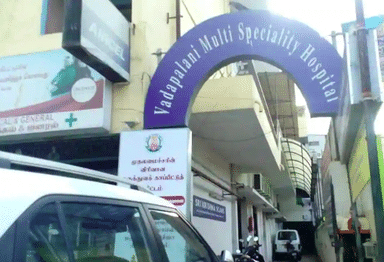Get the App
For Doctors
Login/Sign-up
Dr. Palanisamy G
Cardiologist
Chennai
₹ 500 at clinic
Vadapalani Multi Speciality Hospital
#33, vadapalani andavar koil street, Vadapalani. Landmark: Near To Bank Of Baroda, Chennai
Consultation Fee: ₹ 500
View All Slots
Personal Statement
I pride myself in attending local and statewide seminars to stay current with the latest techniques, and treatment planning...read more
Doctor Information
Speciality
- Cardiologist
Other treatment areas
- Cardiologist
Languages spoken
- English
Clinic Location
#33, vadapalani andavar koil street, Vadapalani. Landmark: Near To Bank Of Baroda, Chennai
Clinic of Dr. Palanisamy G
| Clinic's Name | Fees |
|---|---|
| Vadapalani Multi Speciality Hospital | ₹ 500 |
Get Help
Services
Book Clinic Appointment with Dr. Palanisamy G
Vadapalani Multi Speciality Hospital
#33, vadapalani andavar koil street, Vadapalani. Landmark: Near To Bank Of Baroda, Chennai
₹ 500 at clinic
See all timings


